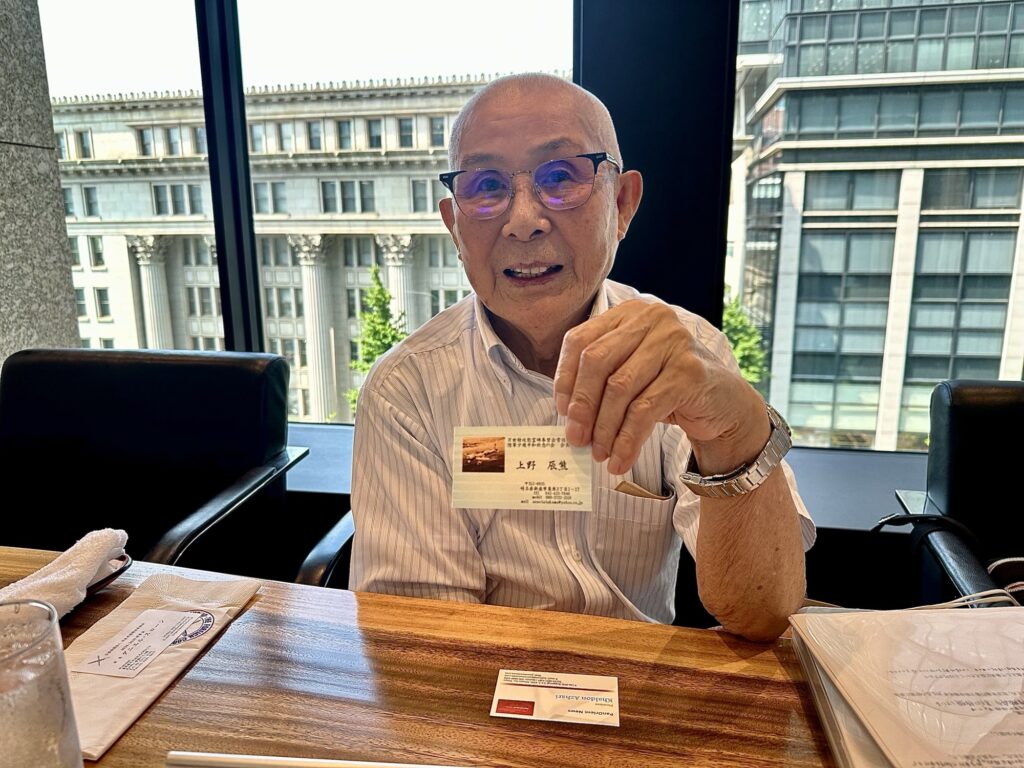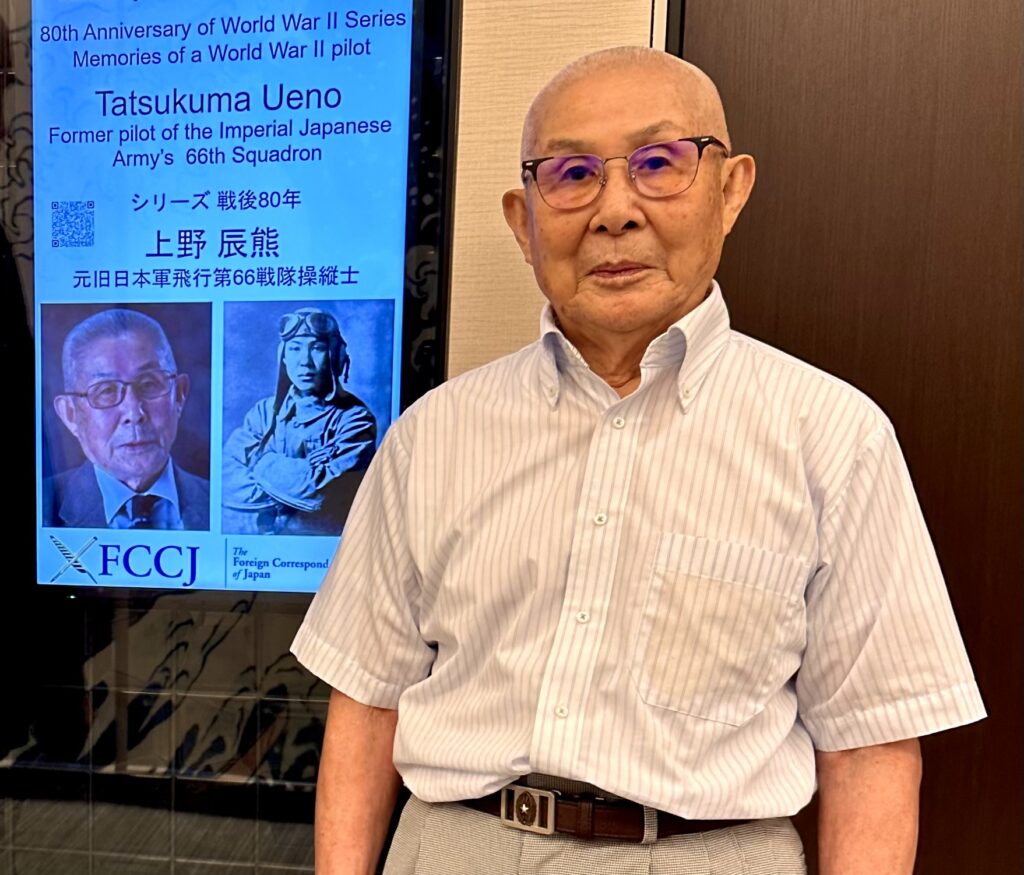



TOKYO: A Japanese pilot who served in the Pacific War says he cherishes the fact that modern Japan has peace and no war.
“As a Japanese, I am really happy to see Japan has become what it is today,” UENO Tatsukuma told a news conference at the Foreign Correspondents’ Club of Japan on Wednesday. “People have grown accustomed to peace and this is totally different from the environment in which I was brought up. I think the fact that there is no war and that peace prevails is the best thing that you could have.”
As a potential “kamikaze” pilot, Ueno says he and his colleagues were told it was their duty to serve and die for their country. Now, he believes that governments should do whatever they can to avoid war and resolve issues through diplomatic means.
“It is difficult for those in the West to understand why the country imposed such things on its youth,” he said. “At that time, we had been taught from childhood in our education to serve the country. Furthermore, both parents and teachers emphasized from an early age the importance of the country, so we believed that dying for our country was our duty. At that time, the concept of death was already embedded in our ordinary feelings.”
Growing up in remote Manchuria – now part of China – in a military facility, it was natural for him to serve his country, Japan. He says he had “a longing for military life.” But, after joining at 15, he admits it was a hard life and physical punishment was normal.
When the war ended, he had malaria and didn’t realize what had happened. “Around 11 a.m., on August 15 [the day of Japan’s surrender] I really had a high fever, so I had to leave the unit and return to where I was staying. At that time, there was the Imperial rescript ending the war, but I really couldn’t understand what was happening. Around 4 p.m., I still had a fever, and my colleague came over to tell me that the war had ended, but I couldn’t respond. I couldn’t understand what was happening. I was just trying to survive malaria.”
He realized what was happening the next day. His colleagues had been prepared to die as kamikaze pilots and when they were told the war was over, “They had a hard time accepting the reality.”
“The last order I received was to standby at my home. The pilots were ordered to return home and stand by there. I half-jokingly say that I’m still in a standby mode, because I was never released from that.”
After the war, the Pilot Ueno found life as a carpenter and worked in construction. “I have been working to rebuild our country and that is what I’ve been doing throughout my life.”
Ueno visits Yasukuni Shrine in Tokyo every year to pay respect to his fallen comrades. “There are more than 30 [of my comrades] who perished and so I really want to pay tribute to them and pray for their souls. And I think because I’m continuing to do that, they are up there supporting me to continue to live.”